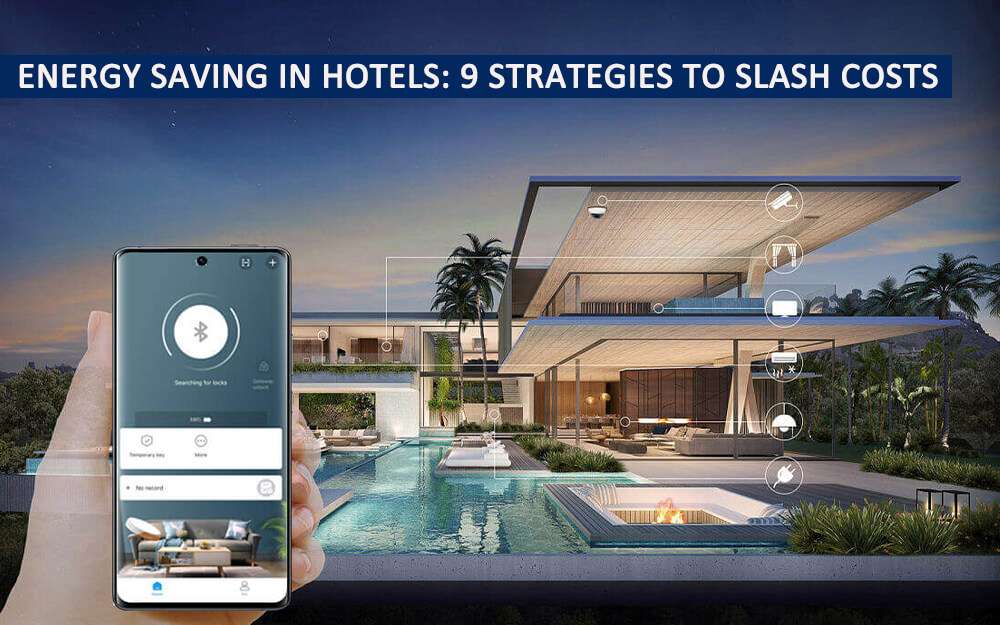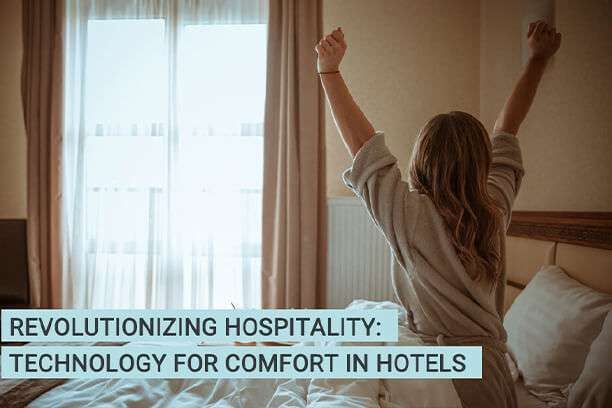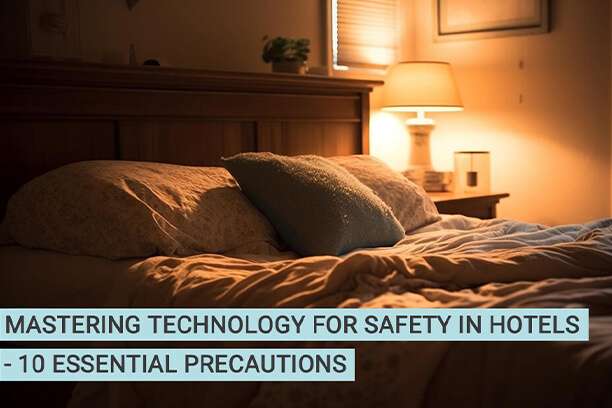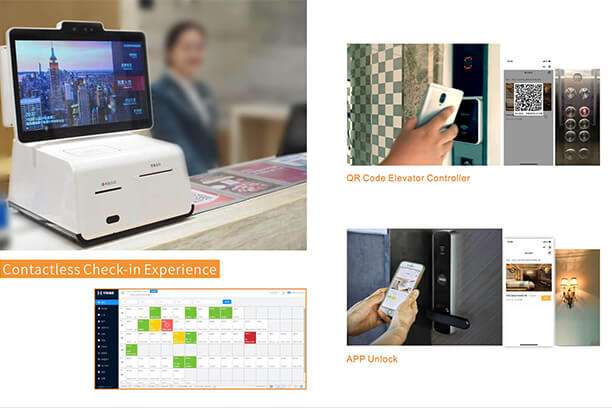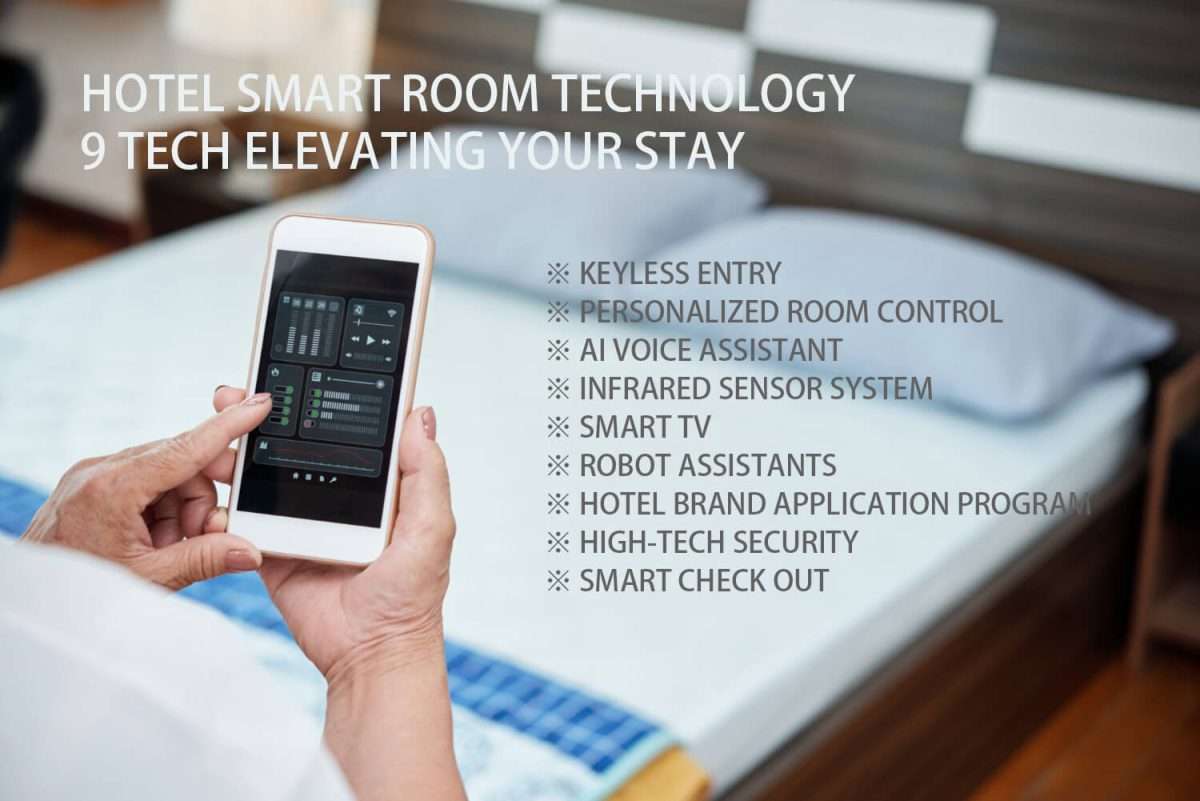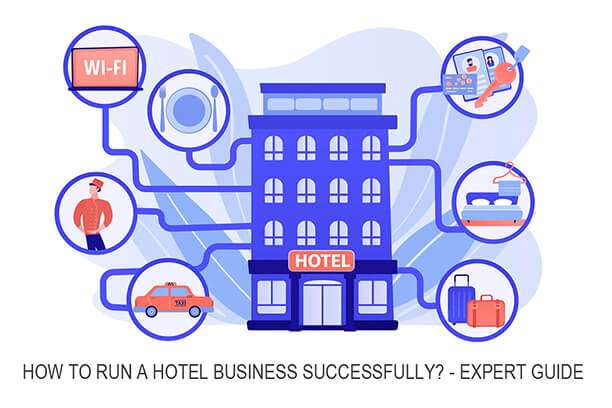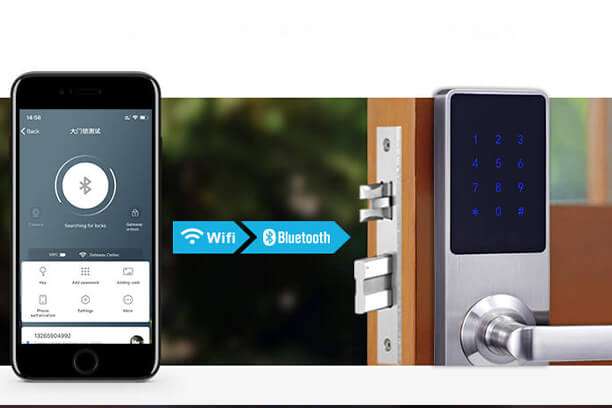As a high-traffic and densely populated service venue, hotels involve significant resource investments, including equipment and staff. Typically, hotels spend about 10% of their total revenue on energy, and some hotels even spend more than 15%. With the continuous rise in global energy prices, this proportion is expected to keep increasing. Therefore, finding ways to reasonably and effectively implement energy saving in hotels without compromising customer experience is an urgent issue that needs to be addressed.
Here, we will analyze the energy consumption situation within hotels and provide energy-saving practices to help hotels achieve energy efficiency benefits. The aim is to offer feasible insights and effective methods for hoteliers/managers/stakeholders to lower energy costs while contributing to a more sustainable and responsible future.
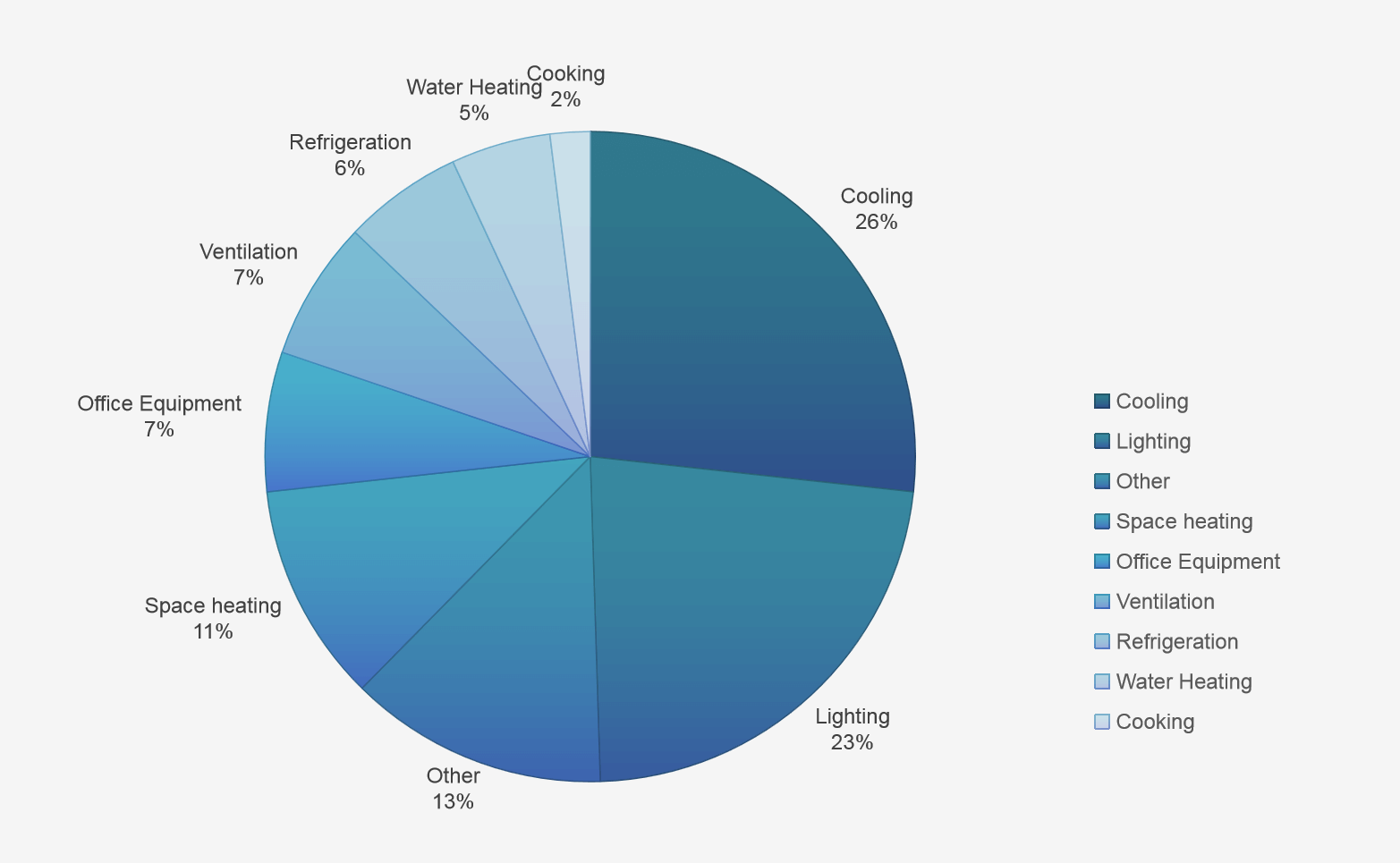
According to the Energy Star report, we can see that energy consumption in hotels is primarily concentrated in various areas.
With cooling accounting for 27%, lighting for 23%, other uses for 13%, space heating for 11%, office equipment for 7%, ventilation for 7%, refrigeration for 6%, water heating for 5%, and cooking for 2%.
In summary, cooling, heating, and lighting are the most significant sources of energy consumption in hotels. Since hotels are open 24/7, it is imperative to maintain a comfortable temperature and lighting level. This is directly related to guest satisfaction and guest comfort experience.
Specifically, based on seasonal and regional variations, hotels need to flexibly adjust indoor temperatures. For example, lowering temperatures in hot summers and activating heating systems in cold winters to ensure a consistently comfortable hotel environment. However, such adjustments come with corresponding increases in energy consumption.
Furthermore, the hotel lighting system also plays a crucial role. Adequate and appropriate lighting is not only a key factor in enhancing the customer experience but also directly influences guests’ perception of hotel safety. To achieve energy efficiency, hotel management should comprehensively consider how to efficiently control these major sources of energy consumption without compromising service quality.
9 Strategies for Energy Efficiency in Hotels
1. Switching to LED Lighting Systems
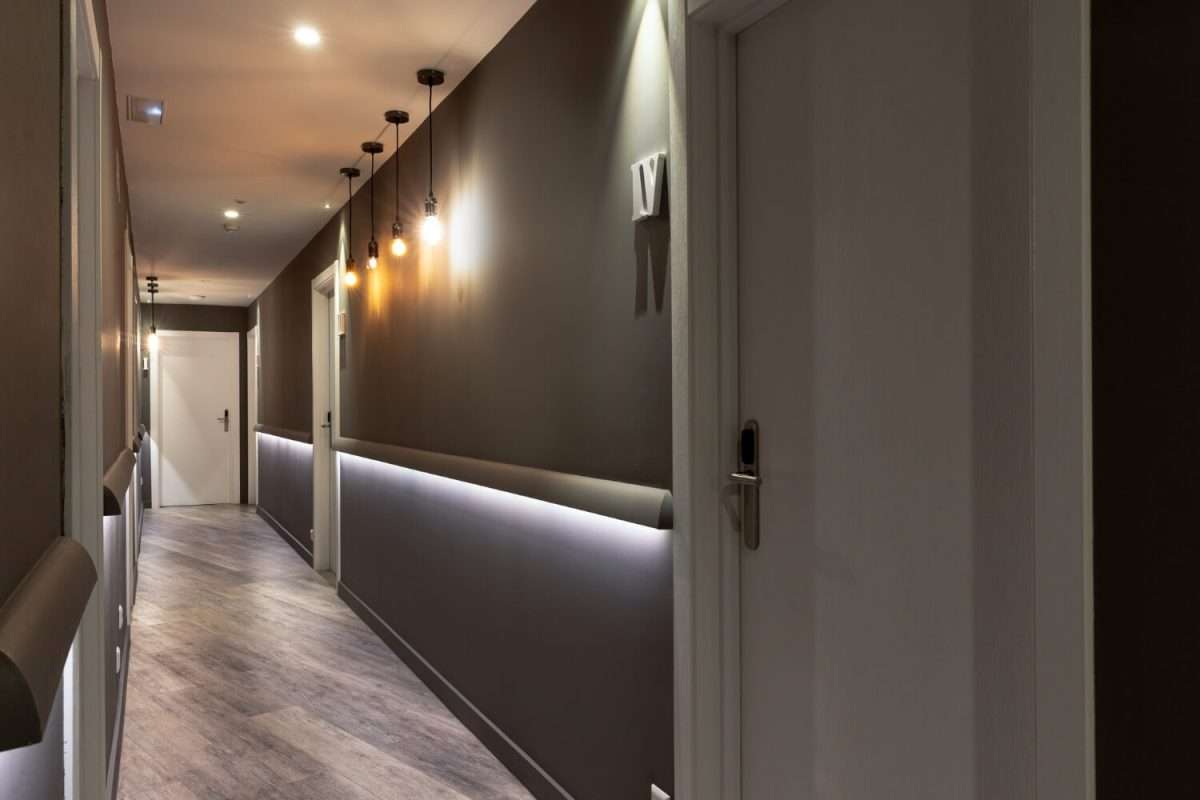
Hotels, as places requiring lighting around the clock, allocate over 20% of their total energy costs to illumination. In this regard, LED lighting systems outperform traditional incandescent and fluorescent lights.
LED (Light Emitting Diodes) are solid-state semiconductor devices with a unique operating principle that efficiently converts electrical energy into light energy. With a light efficiency of over 100 lumens per watt and a lifespan exceeding 80,000 hours. It outlasts traditional incandescent lights by more than 25 times.
Replacing regular light bulbs with LEDs can save hotels at least 75% of energy. Overall, adopting LED bulbs is a reliable and eco-friendly choice for hotels.
2. Smart Lighting systems
Through smart lighting systems, hotels can adjust the brightness and color temperature of room lighting based on different times and environmental needs.
During the day, the system maximizes the use of natural light to reduce unnecessary artificial lighting; While at night, it employs soft lighting to provide a sufficiently bright environment while avoiding harsh glare. This system helps hotels achieve more refined energy management, saving unnecessary energy waste.

Additionally, smart lighting modes enhance the guest experience by providing more personalized hotel services. Guests can customize room environments according to their preferences or use preset modes with a single click.
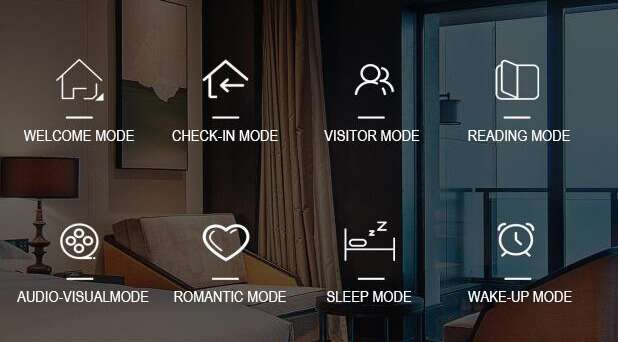
3. Smart Energy-Saving Switch
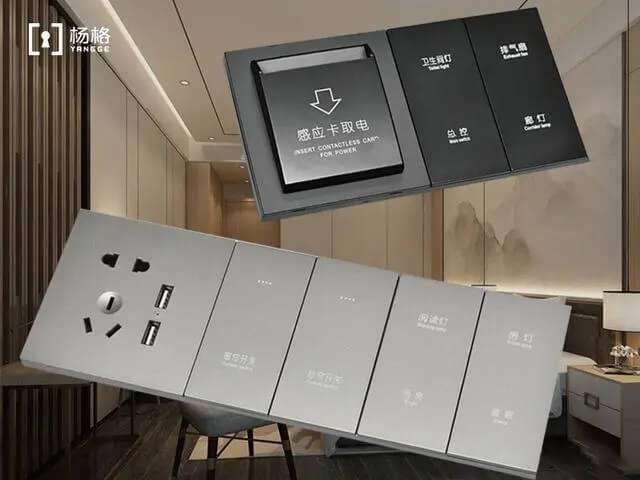
The room energy-saving switch is a device designed to effectively manage room energy consumption. Typically installed near the room door, these switches facilitate convenient card-based power supply and outage for guests.
When a guest inserts the card into the switch in the room, the power supply is activated, allowing them to use electrical devices. Upon the guest leaving the room and removing the card, the system automatically reduces or turns off energy consumption, minimizing energy waste and effectively lowering energy costs.
Advanced room energy-saving switches can also be linked with electronic hotel door locks. When a guest enters the room and locks the door from inside, the system intelligently supplies power to the room. Additionally, the hotel front desk can remotely control room power, achieving precise energy management.
4. Use of Occupancy Sensors
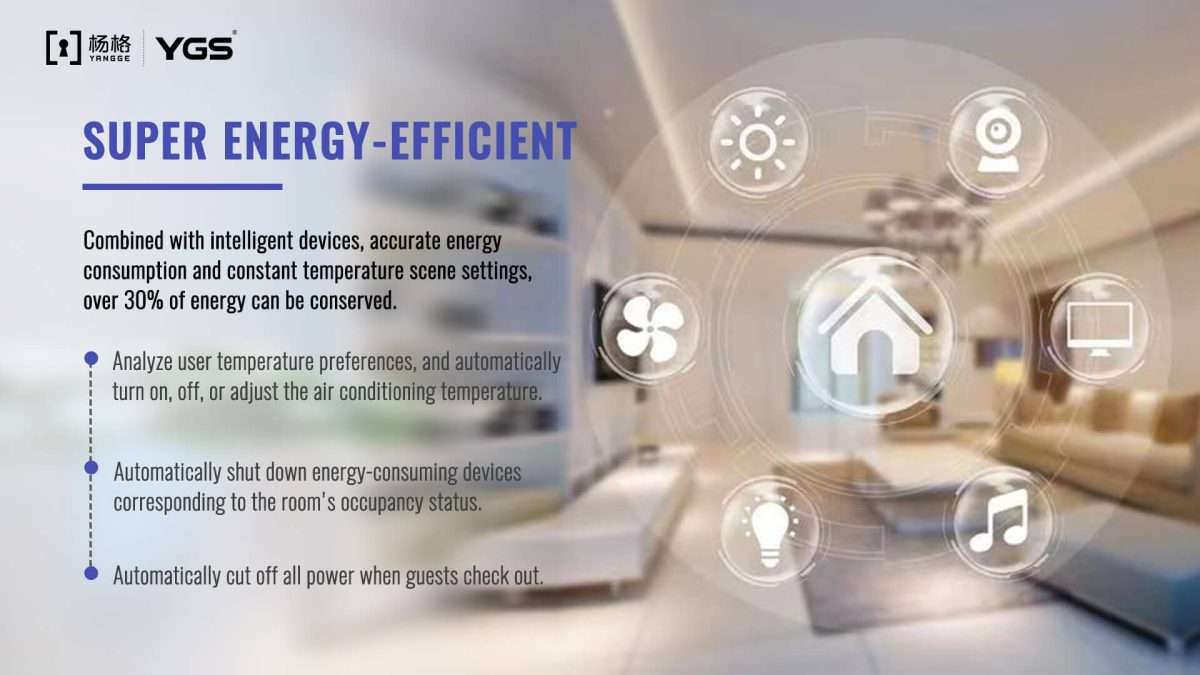
Occupancy sensors, typically installed indoors, use motion detectors or thermal sensors. When the sensors detect an unoccupied room, this smart technology automatically activates the room’s energy-saving mode, shutting down unnecessary power devices. This intelligent control measure not only reduces energy waste but also prolongs the lifespan of electrical equipment.
Simultaneously, when the sensors detect someone entering, they automatically power up devices, providing a convenient guest experience and increasing guest satisfaction.
For example, at night, if someone enters the bathroom, occupancy sensors can automatically sense and illuminate comfortable lighting. This can avoid the inconvenience of finding the power switch in dim light.
5. Smart Thermostat
The smart thermostat aims to adjust the operation status and efficiency of the hotel’s air conditioning units based on periods to minimize energy consumption. This system is primarily applied in hotel lobbies and guest rooms.
Lobby Temperature Control
The hotel lobby also is open around the clock, its comfort directly affects guests’ impressions of the entire hotel. Through the system backend, management can adjust the air conditioning status in advance by combining people’s flow patterns in the lobby.
In periods of low foot traffic, the temperature could be moderately increased, while during periods of heavy foot traffic, the temperature could be moderately lowered. This ensures indoor comfort while reducing energy consumption, avoiding the comprehensive activation of control devices.
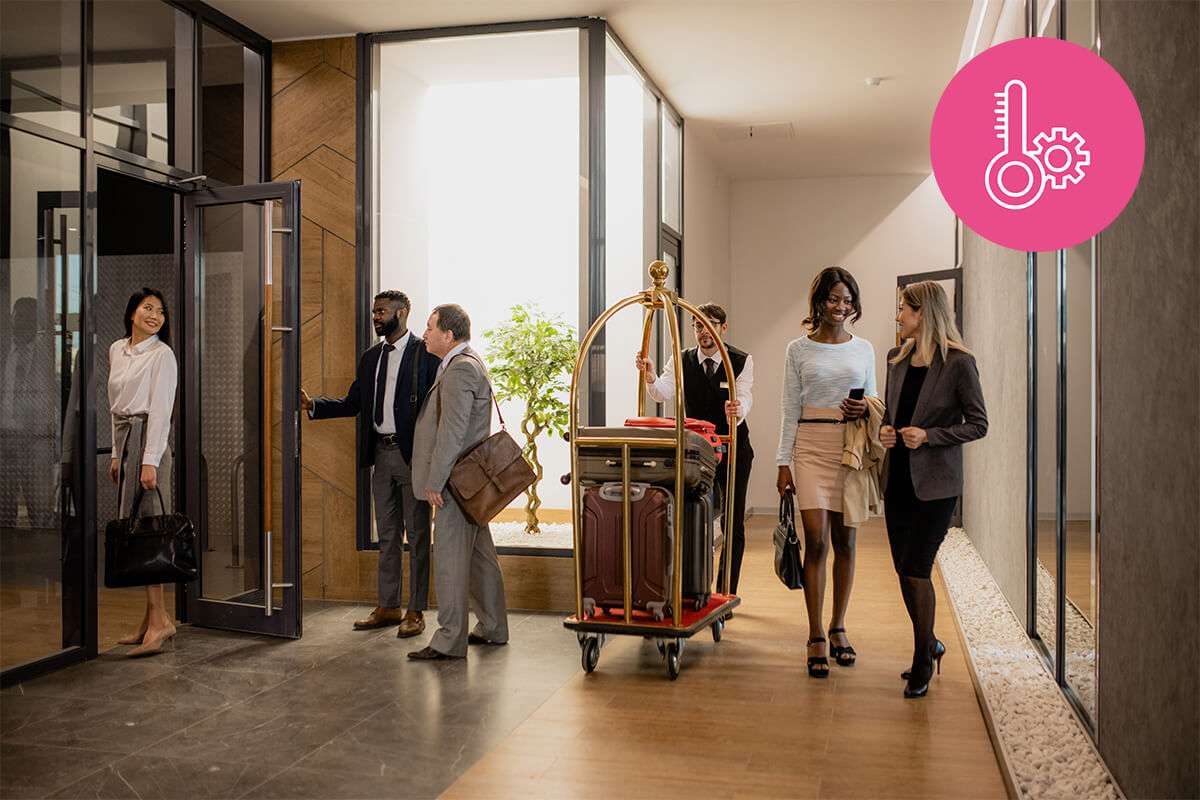
Room Temperature Control
Implementing temperature control in guest rooms not only enhances guest satisfaction but also achieves energy savings. Front desk hotel staff can remotely control guest room air conditioning through the system, adjusting the room temperature to a comfortable level before the guest arrives.
This way, guests can enjoy a pleasant environment upon entering the room, while reducing the risk of high energy consumption due to guests hastily lowering the temperature. This method effectively achieves energy-saving goals.
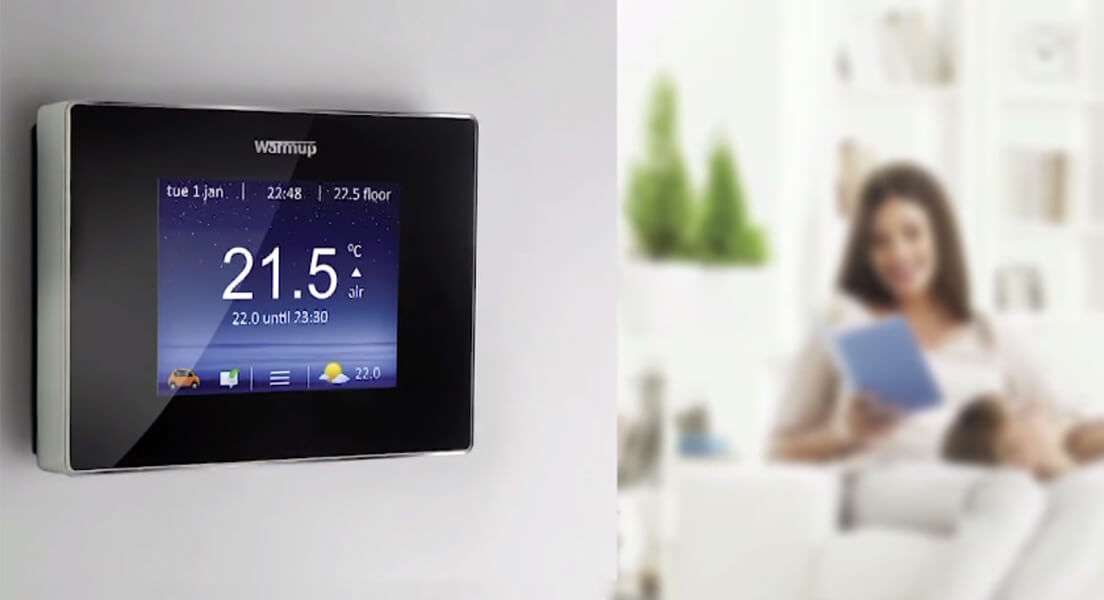
6. Smart Curtain and Window Systems
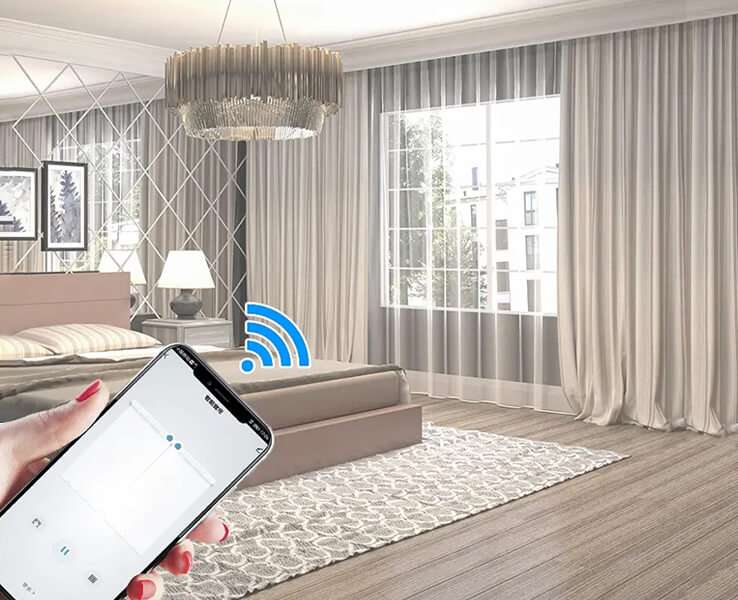
Smart curtain and window systems are advanced building automation technologies. They automatically adjust the opening and closing of curtains and windows based on weather conditions and time. By fully utilizing natural daylight and temperature, the reliance on artificial lighting and air conditioning will be reduced.
During the day, they can adjust to the optimal open state, filling the interior with sunlight, which provides a bright and pleasant environment while minimizing the use of electricity.
In the evening or on cloudy days, they automatically close, ensuring privacy and reducing the building’s demand for lighting systems.
Moreover, smart curtain and window systems collaborate with smart temperature control systems.
In hot weather, they can promptly close. As a result, the air conditioner can work less as a result of reduced indoor heat input, and more energy is saved.
As the weather cools, they can adjust to the appropriate state, maximizing sunlight’s efficiency, reducing heating energy consumption, and improving energy efficiency in general.
In summary, the intelligent control of smart curtains and windows not only enhances the quality of the building environment but also effectively reduces dependence on power-consuming devices, making a positive contribution to sustainable development and energy conservation.
7. Adding Water-Saving Tools
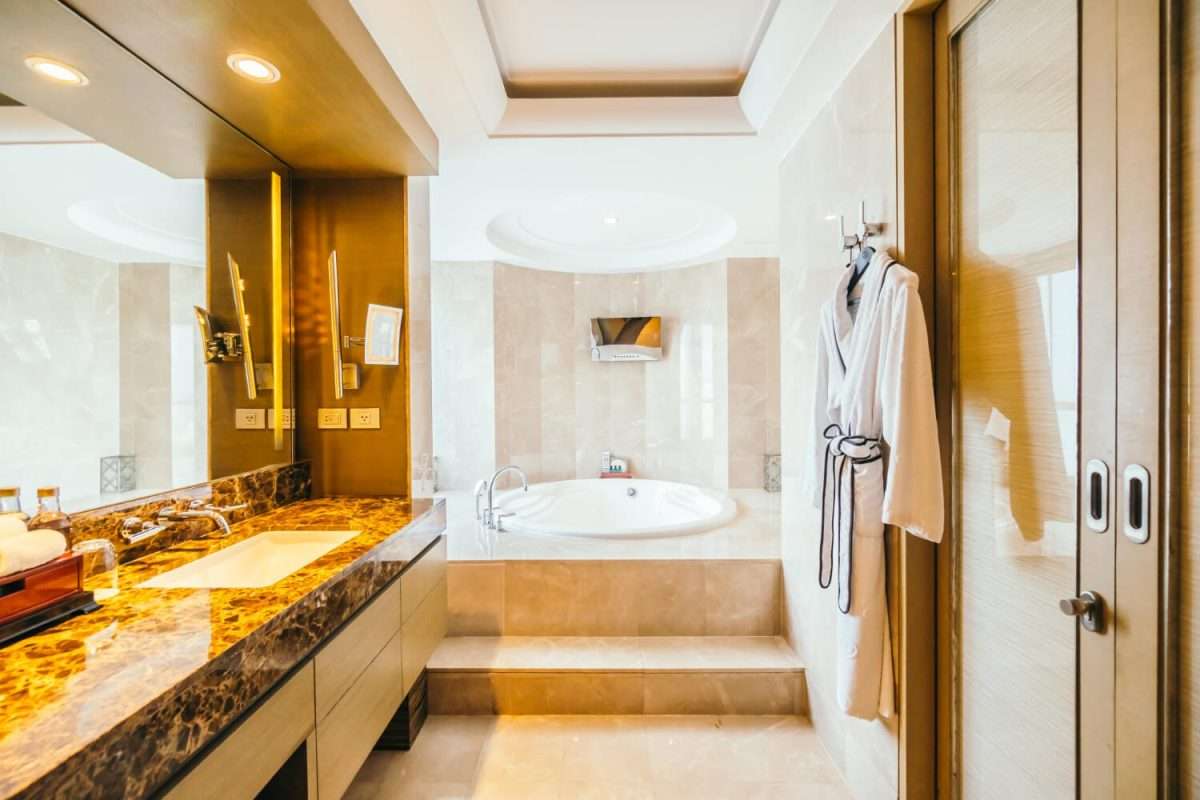
In hotel operations, water costs are a significant energy expense. Introducing water resource management measures helps not only reduce water waste but also effectively decrease operating costs while positively impacting the environment. Here are some common water-saving practices:
- Low-Flow Showerheads: Using low-flow showerheads, water flow in guest rooms and public bathrooms can be intelligently controlled. This measure not only reduces shower water consumption but also ensures a comfortable user experience.
- Water-Saving Toilets: Installing smart water-saving toilets with dual-flush technology or low water level flushing. It can reduce the amount of water needed for each flush, thanks to advanced water control technology.
- Automatic Faucets: Introducing automatic sensing faucets allows intelligent setting of water flow each time, avoiding unnecessary water waste caused by forgetting to turn off the faucet.
With these water-saving tools, hotels can improve water resource utilization efficiency and demonstrate environmental responsibility in business operations, leading to more sustainable services for their customers.
8. Solar Power System
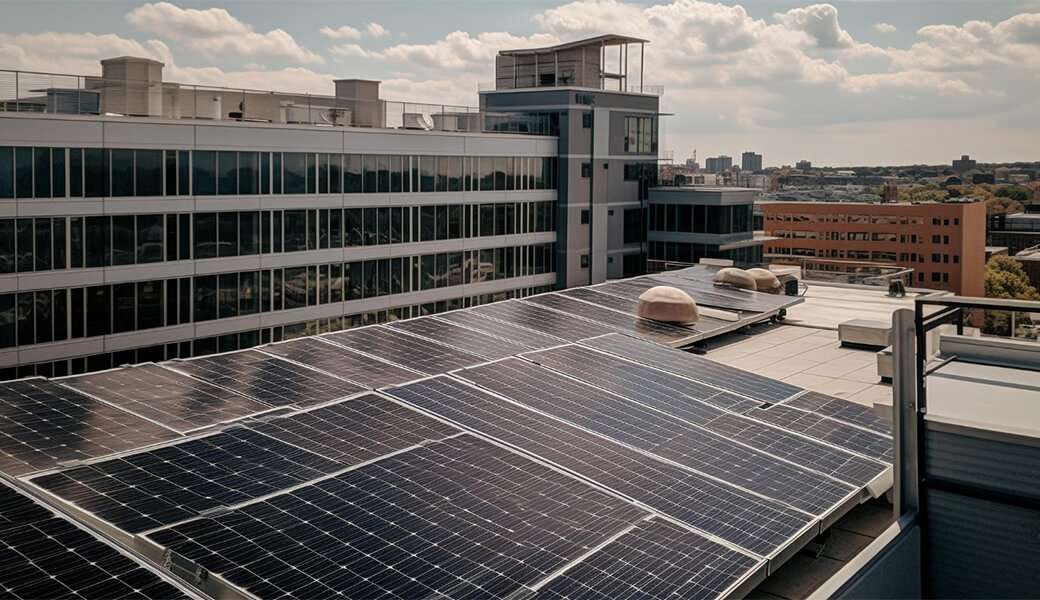
The solar power system utilizes solar energy resources to provide electricity for hotels. The system includes components such as solar panels, inverters, battery storage systems, monitoring, and control systems.
Such renewable energy source helps reduce dependence on traditional power sources, lowering the hotel’s carbon footprint. For instance, some systems can also be used to meet hot water demands, reducing reliance on conventional water heaters.
Using solar technology in hotels reduces operational costs and aligns with the global trend toward sustainable energy. Additionally, it enhances the hotel’s image, catering to the growing consumer concern for sustainable practices.
9. Energy Detection and Management System
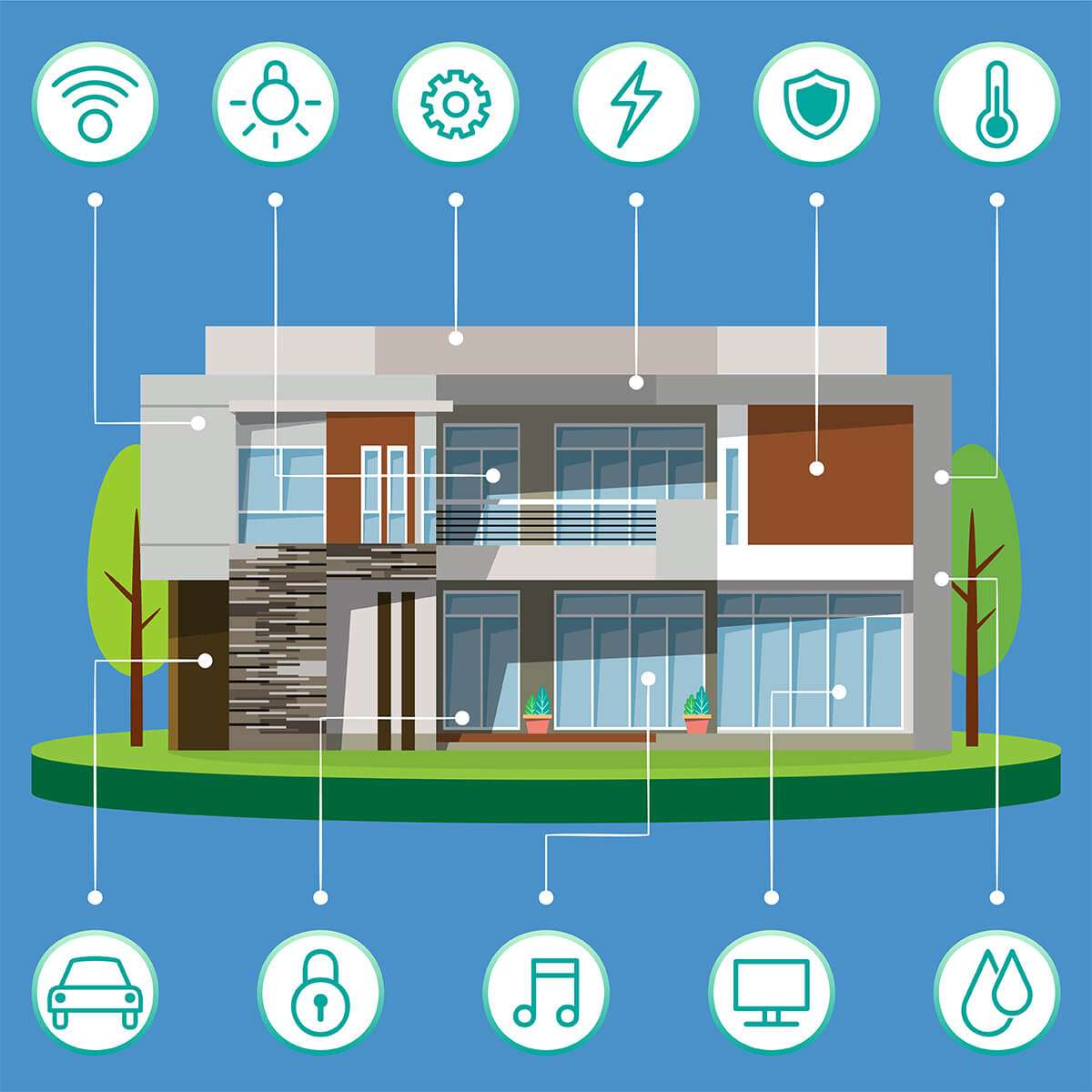
Energy detection and management systems play a crucial role in hotel operations. By monitoring and deeply analyzing real-time energy consumption, this system provides accurate and comprehensive data support to hotel management. With this information, hotel operators can formulate efficient and scientific energy management strategies, effectively cost-saving.
Moreover, the system can promptly identify and address potential energy waste issues, further enhancing the hotel’s intelligent energy utilization. By integrating advanced energy monitoring technology, hotels can achieve real-time responsiveness to energy consumption. Thus maximizing energy utilization efficiency and laying a solid foundation for sustainable hotel operations.
Benefits of Energy Saving in Hotels
Reduce Hotel Energy Costs
Hotels are continuously operational and have high energy demands. Relevant studies indicate that effective energy management can reduce operational costs by over 10%.
For instance, adopting energy-efficient lighting systems, smart temperature control devices, and efficient energy management systems can decrease energy consumption, thereby reducing electricity expenses.
Enhance Hotel Image
Implementing hotel energy-saving solutions contributes to establishing the hotel’s eco-friendly image, enhancing its reputation in society and the market. In today’s society, awareness of sustainable development and environmental protection is increasing.
Therefore, by actively focusing on energy efficiency and environmental issues, hotels convey a responsible and sustainable business philosophy to hotel guests, thereby strengthening the hotel’s image. Additionally, this is attractive to environmentally conscious customers and long-term partners.
Improve Customer Satisfaction
The implementation of energy-saving measures in hotels not only reduces costs on energy but also enhances service quality. For example, improving lighting systems provides better illumination. Offering a more comfortable temperature, thereby increasing customer satisfaction and experience.
Extend Equipment Lifespan
Effective energy management helps alleviate the burden on equipment, reducing excessive use and wear, thus extending the equipment’s lifespan.
Through regular maintenance and reasonable use of equipment, hotels can reduce early failures and damages. Thus lowering the high costs associated with equipment replacement and enhancing the hotel’s long-term sustainability.
Reduce Energy Consumption
By adopting efficient energy-saving devices and energy-efficient technologies, hotels can effectively decrease energy consumption.
This not only helps slow down dependence on limited energy resources but also contributes to reducing negative environmental impacts. For the hospitality industry, this is a competitive advantage, more in alignment with societal expectations for energy sustainability.
Conclusion
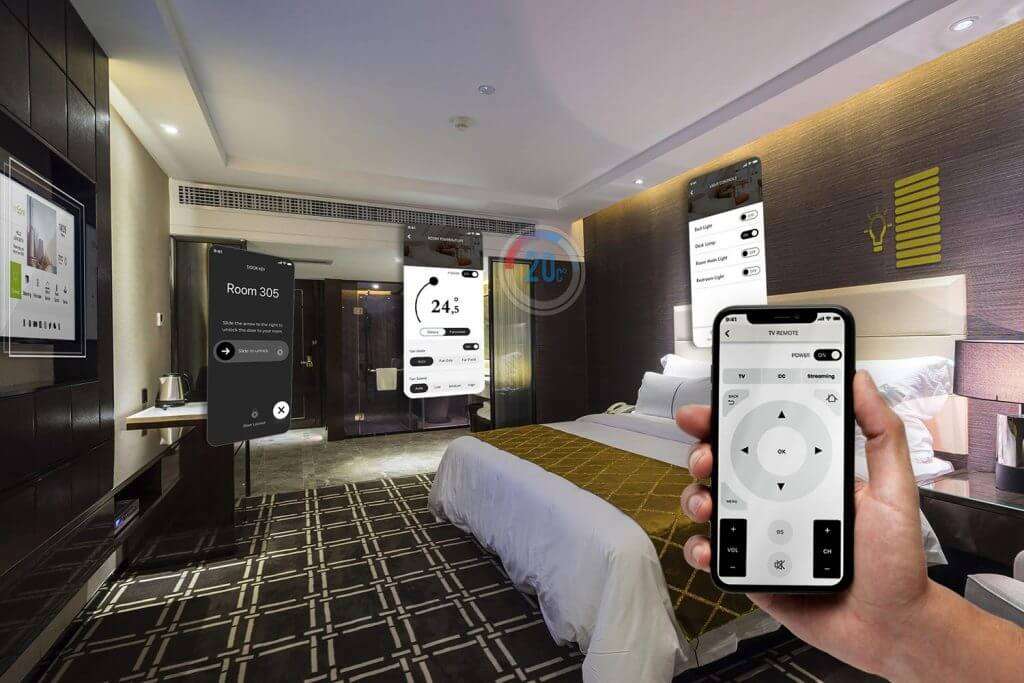
As energy costs continue to rise globally, the hotel industry faces an urgent challenge of reducing energy costs. Through the analysis above, we can clearly see that implementing energy-saving measures in hotels will bring various substantial benefits.
Technological advancements will increase the need for intelligent and sustainable solutions in the hotel industry in the future. To keep your hotel in line with the development of the times and achieve cost reduction and efficiency improvement, it is recommended to adopt innovative technologies soon.
We are a leading supplier of smart hotel lock systems in China, focusing on providing comprehensive solutions such as smart access control, smart room control, and smart hotel management. Our systems are widely used in various scenarios such as hotels, apartments, and campuses, providing protection for millions of businesses and families. Contact us now to collaborate and significantly improve the energy efficiency of your hotel.
Online Enquiry Form
Related Blog
With more than 20 years of smart lock experience, YGS could provide a set of hotel door lock management solutions for your hotel business.
Revolutionizing Hospitality:Technology for Comfort in Hotels
Hotel accommodations are typically the first stop for travelers after a long journey. Technology for comfort in hotels has become a pivotal factor in enhancing the quality of travelers’ journeys. It also affects the hotel’s occupancy rate. As technology advances rapidly, hotel comfort includes not only a clean environment and thoughtful services, but…
Mastering Technology For Safety in Hotels: 10 Essential Precautions
In today’s era of rapid advancement in mobile and emerging technologies, the hospitality industry is undergoing a profound technological transformation. As a field centered around providing exceptional experiences, the level of technology in the hotel directly determines the guest experience…
IoT in hospitality industry: The Ultimate Game-Changer for Your Business
The hotel industry has undergone significant technological changes in recent years with the development of IoT in hospitality industry. Modern consumers demand connectivity and personalization, and hotels that embrace the IoT can exceed these expectations by providing a more comfortable and efficient experience for…
Hotel Smart Room Technology: 9 Tech Elevating Your Stay
As the smart era approaches, people’s living standards and pursuit of high-quality living are constantly improving. For hotel guests, compared to the hotel room rates, they are more concerned about the “experience” of the hotel. Hotel smart room technology…
How to Run a Hotel Business Successfully? – Expert Guide
How to run a hotel business successfully? It is no easy feat. From preparing for hotel launch to managing day-to-day operations, you will face many unexpected challenges and chances. To achieve a successful hotel business, you need to grasp the opportunities and handle…
The Ultimate Guide to Hotel Maintenance: How to Keep Your Hotel in Tip-Top Shape
Hotel maintenance is a very important topic for discussion in the hospitality industry. Hotel maintenance not only affects the entire environment of the hotel but also affects the check-in experience for the guests. Therefore, the hotel should be maintained regularly to…

